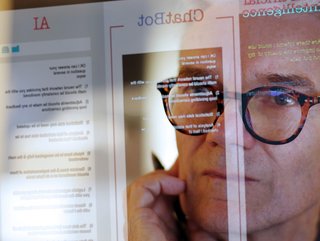Deloitte: Generative AI used by four million people at work

A study by Deloitte has found that more than four million people in the UK have used generative AI for work. Its digital consumer trends research found that 52% of people in the UK have heard of generative AI and a quarter (26%) have used it.
These findings correspond with wider adoption of AI tools within the workplace. In particular, there are concerns that technology is evolving too quickly for businesses to keep up with, as AI continues to dominate workplaces. Previous research has indicated that more than 60% of organisations are not ready for AI, but anticipate that it will bring up to 16% growth in global annual revenue, subsequently revolutionising multiple industries.
Generative AI to fuel better data management
Deloitte’s annual survey of the UK’s digital behaviours is based on a nationally representative survey of 4,150 respondents and this year it considered generative AI for the first time.
Of those that have tried a generative AI tool, almost a third (30%) say that they only used it once or twice, with 28% of participants using it weekly. One in ten (9%) say that they use an AI tool at least once a day.
However, the company suggests that generative AI is still viewed by many as a work in progress. The report highlights that there is likely to be even more investment and development of AI worldwide that will aim to address current challenges. Long-term, this could drive further adoption of generative AI within the workplace worldwide.
Although the use of AI in the data industry has, until now, mainly focused on predictive analytics, reports like this suggest that the world is entering an era of creative generative AI, where data analysis and automation will shape the future of data management and data quality - especially within the workplace.
Deloitte’s research also found a third (32%) of those who have used generative AI have done so for work, equating to approximately four million people. This is despite the fact that only 23% of respondents believe that their employer would approve of them using generative AI for work purposes.
Global workforce continues to undergo digital transformation
In 2023, the UK government pledged to enhance its investment into AI. In March 2023, it published a white paper that set out a fresh approach to regulating AI, in the hopes of building public confidence, as well as allowing businesses to innovate and grow.
As AI technologies continue to advance and become more sophisticated, governments could streamline operations and deliver more effective services. It will be great to see continued responsible progress into generative AI worldwide, with more countries investing into workplace tools to improve efficiencies and digital growth.
Costi Perricos, partner and Global AI and Data lead at Deloitte, said: “With millions of people using Generative AI tools in the workplace, potentially without permission, it is critical that employers offer appropriate guidelines and guardrails so that their people know how, when and where they can use the technology.
“Businesses will also need to consider how they communicate their own policies on Generative AI to customers and understand how their suppliers are using the technology to ensure transparency. People need to understand the risk and inaccuracies associated with content generated purely from AI, and where possible be informed when content, such as text, images or audio is AI-generated.”
Perricos added: “In anticipation of Generative AI increasingly becoming a fixture of the workplace, organisations should prioritise upskilling their workers to thrive alongside this technology.
“Generative AI has the potential to not only replace routine tasks but also create higher-skilled, non-routine opportunities across the labour market. A key focus for employers should be on how to use these new tools so that they can be applied correctly and create value. This shift is ongoing and set to continue in the coming decades.”






